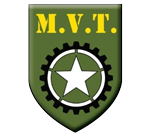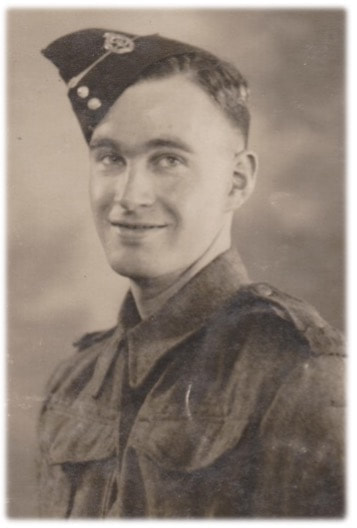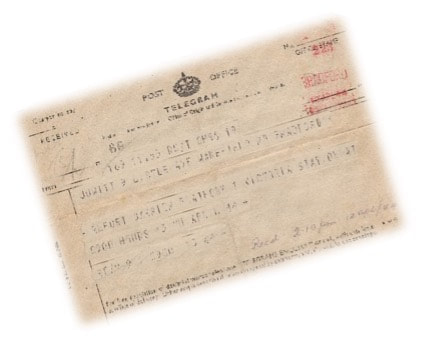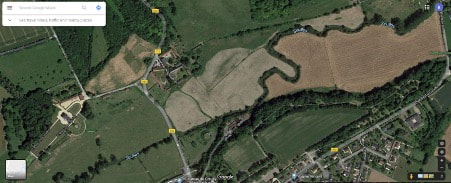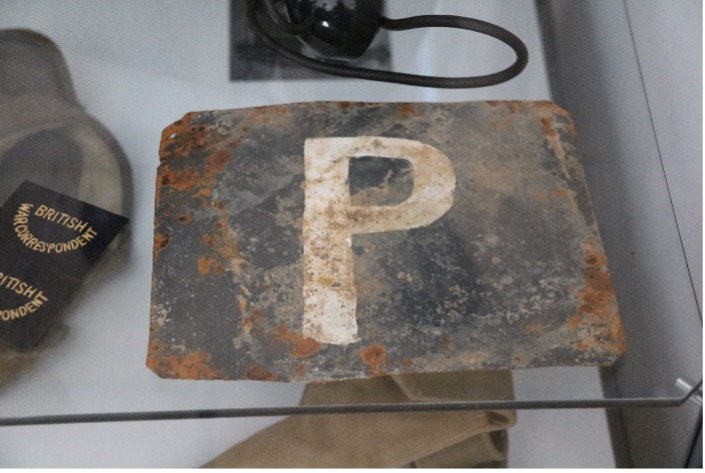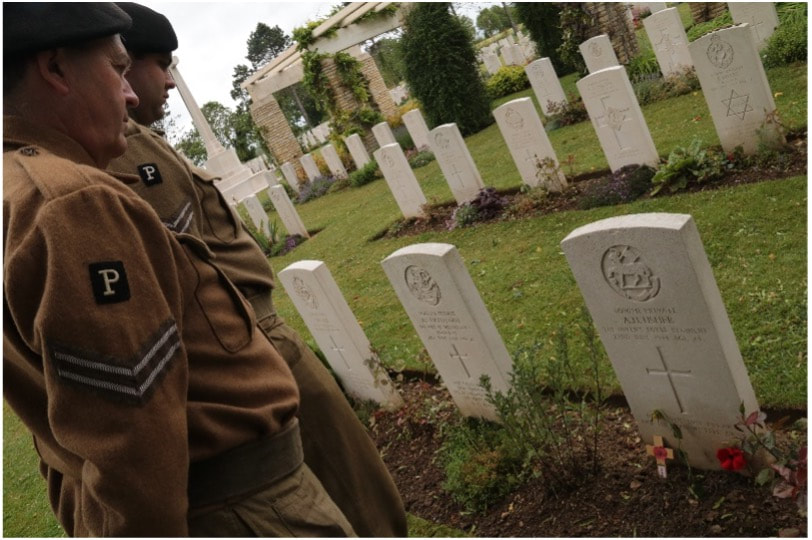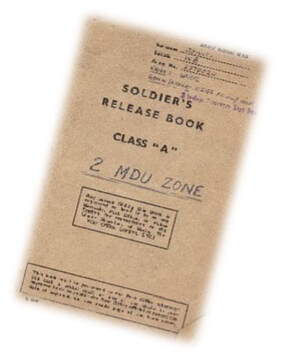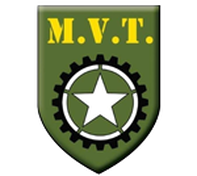Veterans Stories:
Following in the footsteps of William "Bill" Jowitt of PhantomWilliam Ernest “Bill” Jowitt was born in Hull, East Yorkshire, on 24 January 1921, the eldest child of William Jowitt (1893-1963), a WW1 veteran from Leeds and Gudridur Helgidottir (1894-1981), originally from Iceland. He grew up in Anlaby, with his four sisters and at 16, joined the family haulage business. When the vehicles they owned were commandeered for the war effort, Bill started work at Blackburn Engineering at Brough Aerodrome, before being called up in 1941.
|
He joined the Royal Corps of Signals and completed his basic training in Ossett, West Yorkshire but soon, his language and technical abilities were recognised and he was “asked to volunteer” for a newly established and secretive unit. Phantom GHQ Liaison Regiment was an innovative, special reconnaissance and liaison unit, who pioneered the use of modern wireless technology. Their role was to provide real time intelligence about Allied and Axis positions from the battlefront. Their patrols operated close to the front line, gaining a crucial overview of battles by observation, contact with forward units and listening to the radio traffic generated by units directly involved. They relayed this information by wireless, bypassing normal channels directly to liaison officers who passed it straight to the Commander in overall control, giving them an unprecedented up-to-date picture, to assist them to progress the battle.
Bill spent the next three years, based at Richmond Park, training as an instrument mechanic, working on the new wireless technology and helping Captain Peter Astbury, develop powerful transmitters such as the Astbury Amplifier and the still classified MorseX coding machine.
Bill spent the next three years, based at Richmond Park, training as an instrument mechanic, working on the new wireless technology and helping Captain Peter Astbury, develop powerful transmitters such as the Astbury Amplifier and the still classified MorseX coding machine.
|
Bill was at home on leave in Bradford, where his family had moved to to avoid the Hull blitz, when a telegram arrived, recalling him to A Squadron for the D-Day invasion. He travelled back to Richmond before moving to holding areas nearer the coast, as preparations for D-Day came to a crescendo.
3 Phantom Patrols landed on Gold, Juno and Sword Beach on 6th and 7th June and had set up HQ at Chateau de Creullet, where Montgomery had his 21st Army Group Headquarters. Bill would be part of A Squadron’s second echelon landing on Juno Beach alongside the Canadians. He wrote home just before 6th June to one of his sisters and by mentioning the names of people who meant nothing to the family, his father worked out the message “Pompey” meaning he was waiting to embark at Portsmouth. After D-day, a lady living in Portsmouth wrote to the family to say that she had seen him before he left and that he was fine. |
In addition to his personal recollections, we have his diaries from the time and they record brief but fascinating insights into his time in Normandy:
BILL’S NORMANDY
Diary 9th June -aboard the LST - trucks on the top deck and tanks on the lower deck. When ship rolled trucks rolled more on springs – uncomfortable. Saw no Jerry ships or planes - terrific air cover.
BILL’S NORMANDY
Diary 9th June -aboard the LST - trucks on the top deck and tanks on the lower deck. When ship rolled trucks rolled more on springs – uncomfortable. Saw no Jerry ships or planes - terrific air cover.
|
Having boarded the LST at 11am, Bill landed in Normandy on the evening of D Day +3, just west of Courseulles, on Mike Red Sector on Juno Beach, opposite Graye-sur-mer where the Scottish Canadian Campsite is now. He exited the beach on the draw which is now the road from the campsite and turned left past where there was an abandoned Daimler Dingo where the Inns of Court Monument is today.
|
At the first crossroads, he turned right and joined the road to Creully via Graye-sur-mer. His destination was the small village of Tierceville where a large British camp was being established in a field on the right had side of the road past the church. The field backs onto the grounds of Chateau Creully where the BBC was based and more importantly Chateau Creullet where Phantom had their SHQ, ideally located adjacent to Montgomery’s HQ briefing room.
On arrival at Tierceville, he encountered problems with a sniper who had earlier killed a British soldier. He told the story of how the sniper took shots from the Church tower onto the soldiers in the camp below and how when they stormed the tower, they found the sniper was a French woman collaborator. You can still see bullet marks in the stonework of the church. Bill camped around the edge of the field in Tierceville (to avoid being spotted from the air) just opposite the steps where the local women washed clothes in the river that runs through the village.
On arrival at Tierceville, he encountered problems with a sniper who had earlier killed a British soldier. He told the story of how the sniper took shots from the Church tower onto the soldiers in the camp below and how when they stormed the tower, they found the sniper was a French woman collaborator. You can still see bullet marks in the stonework of the church. Bill camped around the edge of the field in Tierceville (to avoid being spotted from the air) just opposite the steps where the local women washed clothes in the river that runs through the village.
|
In 2019, we were shown a vehicle plate in the museum at Chateau de Creully, with the Phantom P insignia that had been found very near that field. A tangible link to Phantom’s presence.
Diary 11th June - Living on 24hr ration packs not very nice. Wrote letter home. Saw Dougie. Tierceville. From Tierceville it was just a few fields walk to Chateau de Creullet where Phantom were supplying Montgomery with reconnaissance information directly from the battlefield and from where Bill was deployed supporting A Squadron's patrols out on the front line as well as carrying out his maintenance work in the workshops at SHQ. During this time, Monty's van was parked along the gravel road under the three trees to the left of the chateau. |
Monty received visits from Winston Churchill on June 12, De Gaulle on June 14, Eisenhower on June 15 and King George VI on June 16 all while Bill was working from there. The English newspaper reporters, accompanying the King, were so explicit about Montgomery's location that German officers in Lisbon, reading the English papers passed the information back bringing German artillery fire, down on the chateau grounds. Luckily Bill stayed safe.
By 22nd June Bill reported that he was supporting patrols listening in on the 7th Armoured Division as they took part in the Battle for Caen.
During this time, Phantom lost a man - Albert Usher who was killed, aged just 24, by a shell burst directly over his tent - two others were seriously injured. Usher is buried at the British Ryes Cemetery
By 22nd June Bill reported that he was supporting patrols listening in on the 7th Armoured Division as they took part in the Battle for Caen.
During this time, Phantom lost a man - Albert Usher who was killed, aged just 24, by a shell burst directly over his tent - two others were seriously injured. Usher is buried at the British Ryes Cemetery
By the end of June, Bill was supporting A squadron patrols listening in on Operation Epsom – and he was close enough to the air strikes on Caen to witness what he called the "barage ala monty". On 7th July he also witnessed a Mustang crash close to Caen, just 2 days before the city was liberated.
There is still great secrecy surrounding Phantom’s use at this time of Peter Astbury’s Morsex Machine which Bill had worked on, but during July it was operating between Advance HQ and A squadron patrols and Bill would have been involved.
After Caen was taken, Bill recorded many call outs to patrols on the frontline as it moved past Caen.
Diary 20th July – Called out to 12 Patrol Ranville. Rained very hard roads flooded
Diary 21st July - Still raining - went out to 6 Patrol - lots of mud and jeep stuck in mud in a shell hole for 3 hours…
Diary 3rd August - Moved to 21st Army Group HQ At the same time, use of the Morsex machine ended – they had been manufactured at Dollis Hill and did not stand up to use.
And as the Phantoms working with the Americans linked up with the Phantoms in the east he wrote
Diary 5th August - Yanks in with us now. Saw MacKenzie and Nicks of L (patrol) (Mckenzie
Diary 9th August – sent into Noron la Poterie and had a cup of Coffee!
On August 11th he was transferred to Phantom’s B Squadron who sent to Amblie, the HQ of the II Canadian Corps.
|
From this point, Bill supported patrols, who were listening in on the Canadians fighting toward Falaise as part of Operation Tractable August 14-21st. B Squadrons patrols were named after Birds - Gannet, Eagle, Tern, Kite etc, as opposed to A Squadron’s which were just numbered. He travelled out to the patrols on the frontline in a jeep – risky excursions as German counterattacks continued.
15th August - heard that RAF had bombed one of Phantoms patrols, near Falaise sector Two injured. By now, the Germans were beginning to retreat and the Canadians moved east and then north as they fought their way towards the north of France, into Belgium and then Holland. Bill remained with them until VE Day when he returned to England to train as part of the Burma Squad who were preparing for deployment to the Pacific. T he war ended before he went and he spent the rest of his time in the Army in Bunde, Germany, supporting the work of the British Control Commission to reinstate the government and economy of post War Germany. He was demobbed in 1947, married Edith Barrie, who he had met in Bunde and became a civil servant before qualifying as a Science teacher. |
